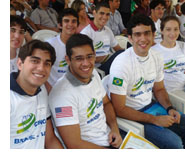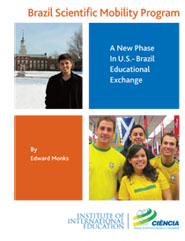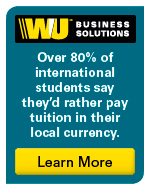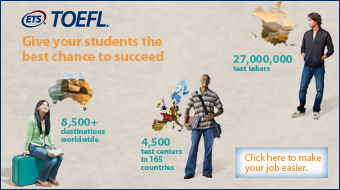
| IIE Home | Membership | Publications | Open Doors | Contact Us |
|
||
|
||
 IIE is pleased to announce the Brazil Scientific Mobility Program (BSMP) is expanding to include Master’s Degrees in Applied Sciences. The Mestrado Profissional nos EUA (Master’s Degree in Applied Sciences) Program is part of the Brazilian government's larger initiative to grant 100,000 scholarships for the best students to study at the world's best universities.
The graduate component, designed and sponsored by CAPES and CNPq, will be administered by IIE and offer students from Brazil the opportunity to pursue terminal master’s degrees in applied technology and science fields, especially those advancing innovation and creativity. Students will enroll in applied technology and science programs to gain knowledge in and experience with cutting-edge and innovative technologies and approaches as well to build pathways into technical and science-based careers. The grant allows for up to two years of study in colleges and universities in the United States. Students are required to complete an internship, preferably during the summer months of their degree programs, and to produce a thesis or engage in a capstone experience.
Students will be selected in February 2014; IIE will submit applications on their behalf to U.S. master’s degree programs for fall 2014 admission. They are expected to complete by June 2016. If your institution is interested in receiving applications, please contact placement@iie.org. BSMP aims to identify institutions, centers, organizations, and leaders with whom sustainable linkages and cooperative exchanges can be established.
BSMP Undergraduate Program 
The Brazil Scientific Mobility Undergraduate Program currently hosts more than 4,000 Brazilian participants in the United States and is expecting to bring over 10,000 additional students by August 2014. A new IIE report "The Brazil Scientific Mobility Program in the United States: A New Phase in U.S.-Brazil Educational Exchange" provides data on one of the fastest-growing undergraduate exchange programs.
A core component of the program is the opportunity for students to participate in academic training. Two-thirds of U.S.-enrolled participants took summer internships at more than 300 companies across the United States. The report suggests that internship opportunities with well-known corporate partners such as Boeing, GE, and Praxair have contributed to the high number of undergraduate applications to come to the United States, which currently hosts the largest number of undergraduate students on the program—followed by France, the United Kingdom, and Canada. Participants are enrolled in 48 U.S. states, with 306 students placed in historically black colleges and universities as part of an initiative to deepen cooperation among diverse and underrepresented groups of academics and scientists.
The overwhelmingly positive feedback on student’s engagement on campus and the expansion of the academic training component of the program suggests a significant increase in cooperation in science and technology in both academic and business communities. The program is developing into a promising model for emerging countries seeking to expand innovation and global competitiveness.
|
| www.iie.org/iienetwork • Member website of the Institute of International Education © 2025 Institute of International Education. All rights reserved. |



